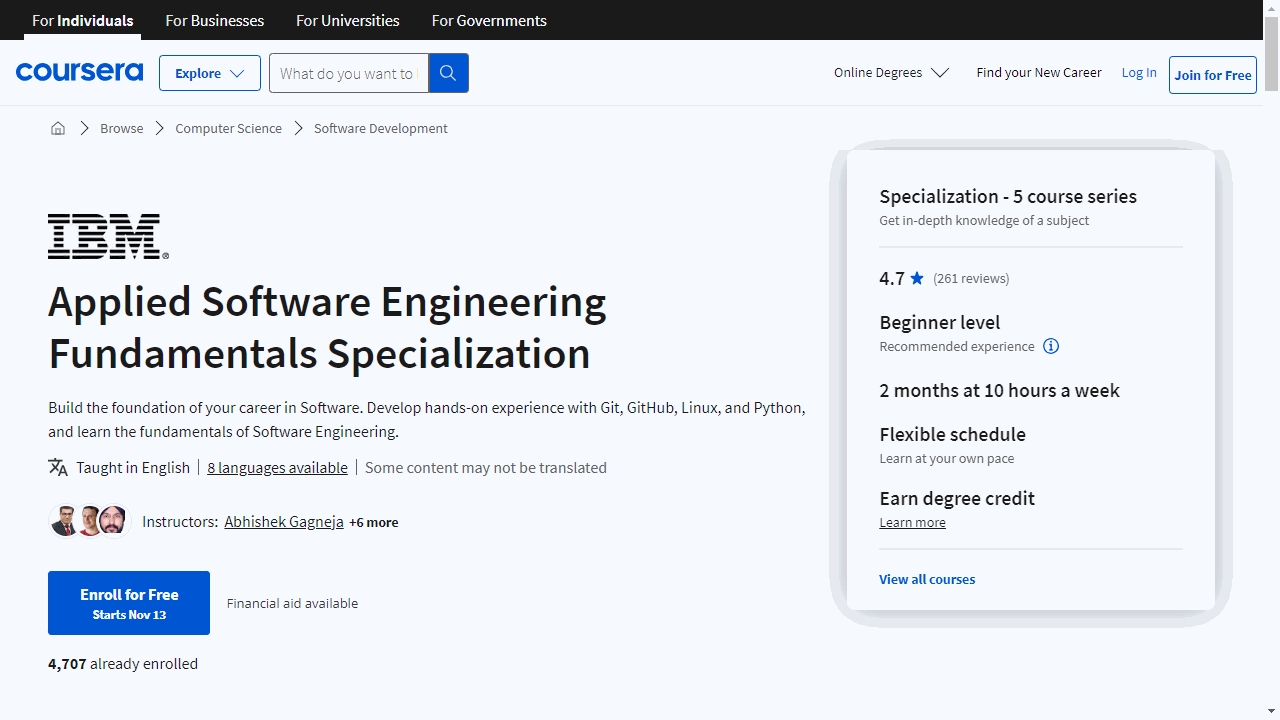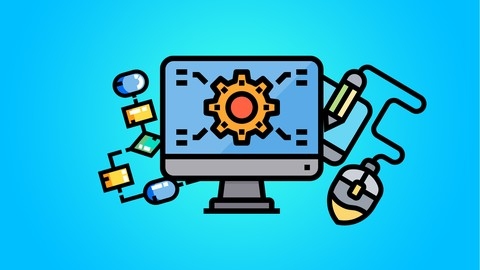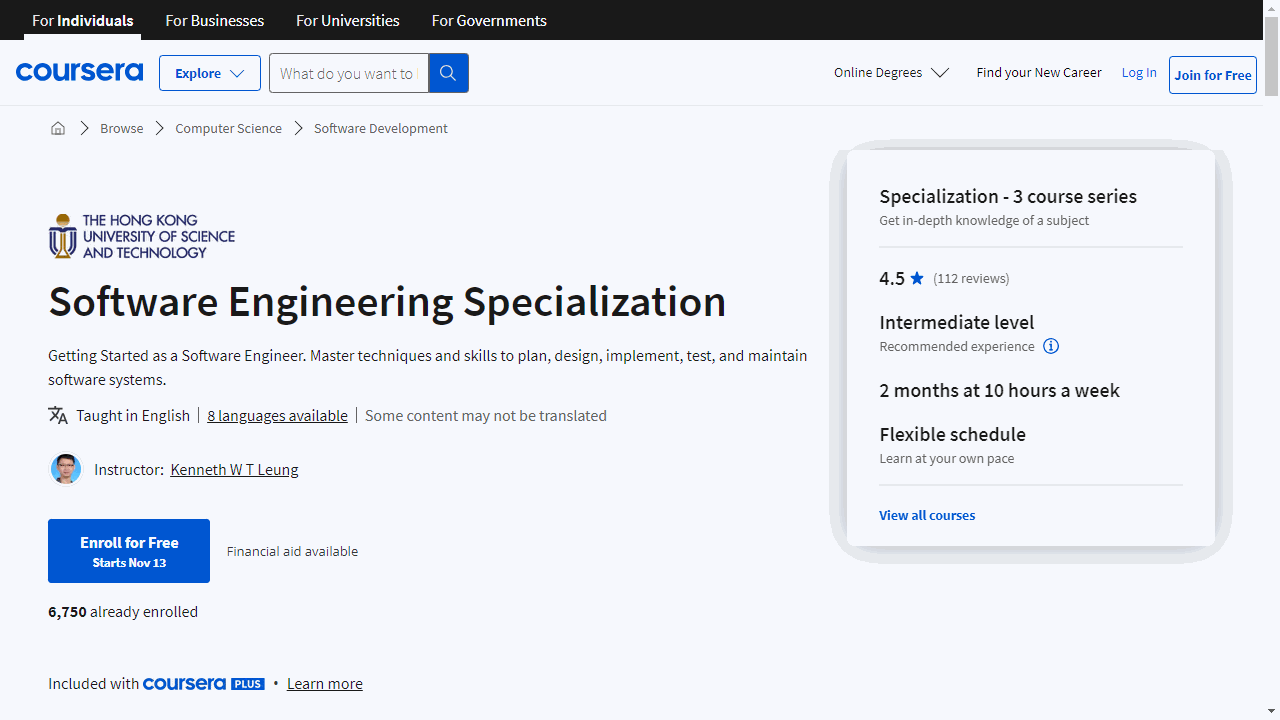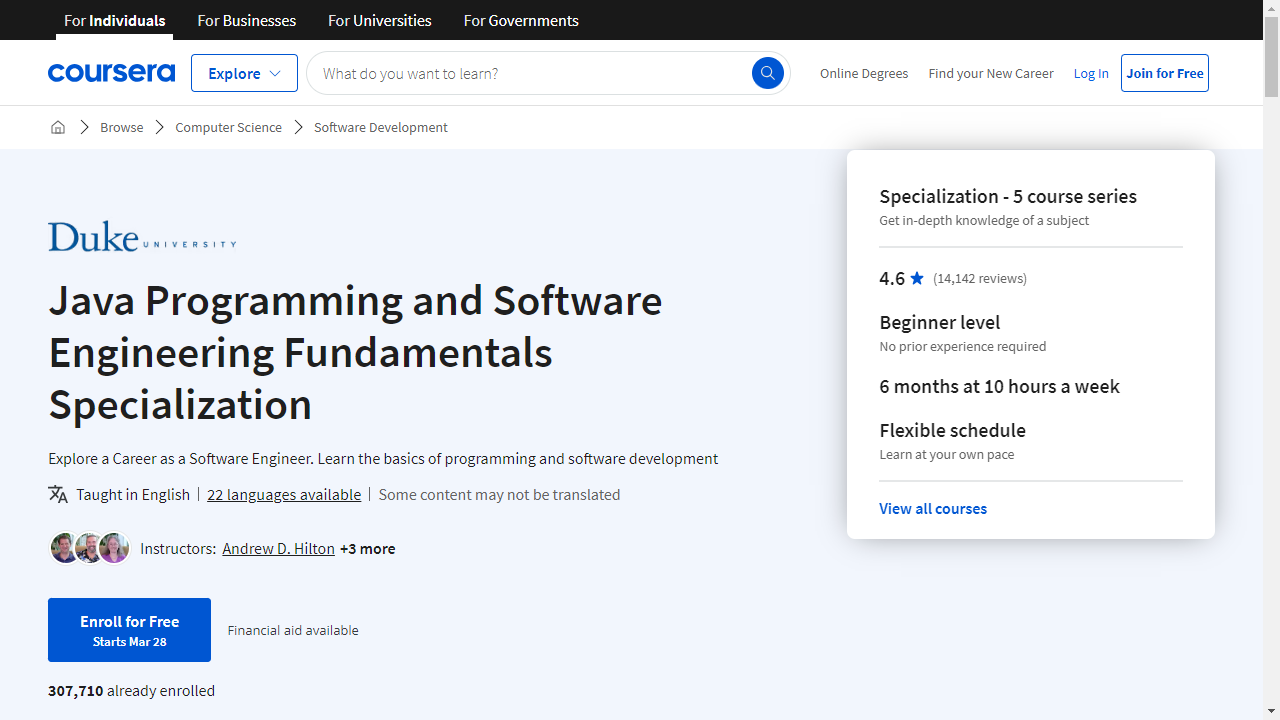Software engineering is the systematic application of engineering principles to the design, development, and maintenance of software systems.
It plays a crucial role in creating reliable, efficient, and scalable software that powers our modern world.
By learning software engineering principles, you can gain the skills to build complex applications, collaborate effectively with other developers, and ensure the quality and maintainability of your code.
Whether you’re aspiring to become a software developer or simply want to understand the process behind the software you use every day, a solid understanding of software engineering is essential.
Finding the right software engineering course can be a daunting task, with a vast array of options available online and in traditional educational settings.
You’re looking for a course that covers the fundamental concepts, provides practical experience, and aligns with your learning style and career goals.
You might be overwhelmed by the sheer number of choices and unsure where to begin your learning journey.
We’ve researched and analyzed numerous software engineering courses to help you make an informed decision.
Based on our evaluation, the Applied Software Engineering Fundamentals Specialization on Coursera stands out as the best course overall.
This specialization offers a comprehensive introduction to software engineering, covering essential topics such as the Software Development Lifecycle (SDLC), Agile and Scrum methodologies, core programming principles, and popular tools like Git and GitHub.
The hands-on labs and projects provide valuable practical experience, making it an excellent choice for both beginners and those seeking to enhance their existing skills.
While the Applied Software Engineering Fundamentals Specialization is our top recommendation, there are other excellent courses available that cater to specific learning preferences and areas of focus.
We’ve compiled a list of top-rated software engineering courses covering various aspects of the field, including programming languages, software design, testing, and project management.
Keep reading to explore these options and find the perfect course to kickstart or advance your software engineering journey.
Applied Software Engineering Fundamentals Specialization
Provider: Coursera
This specialization equips you with a solid foundation in software engineering, especially if you’re starting.
You will learn about the Software Development Lifecycle (SDLC), exploring popular methodologies like Agile and Scrum.
You’ll dive into core programming principles, learning how to design, build, and deploy software.
Through hands-on labs, you’ll gain experience with setting up an Integrated Development Environment (IDE), writing basic Python code, and even creating simple “Hello World” programs in multiple programming languages.
Next, you will explore the Linux operating system, mastering essential commands in the Bash shell.
You’ll learn to navigate directories, manage files, and even automate tasks using shell scripting, a valuable skill for any software engineer.
You will also discover how to schedule tasks using cron jobs, making your work more efficient.
The specialization then introduces you to Git and GitHub, essential tools for collaborative coding.
You’ll learn how to manage different versions of your code, work with branches, and use Git commands to track changes.
Mastering concepts like forking and cloning repositories on GitHub will allow you to collaborate effectively with other developers on software projects.
Finally, you will gain a solid understanding of Python.
You’ll learn about data types, variables, and data structures, as well as logic concepts like conditions and loops.
You’ll use powerful libraries like Pandas and Numpy to work with data, and even learn how to collect data from websites using APIs, opening doors to exciting possibilities in data science and web development.
You’ll even get to apply your Python skills to build an AI application using the Flask web framework.
Software Engineering 101: Plan and Execute Better Software.
Provider: Udemy
This Software Engineering 101 course guides you through the entire software development lifecycle, starting with defining requirements.
You learn how to translate a problem into clear specifications using the WRSPM model.
You then explore architectural patterns like pipe and filter, client-server, and layered patterns, gaining a solid understanding of modularity and information hiding for building maintainable software.
The course covers essential implementation and deployment strategies, emphasizing different testing techniques, including unit testing, integration testing, and black box/white box testing.
You discover the differences between these testing types and why each is important.
You learn to identify and prevent common software defects early in the development cycle.
You then explore various software development models, including Waterfall, V-Model, and Agile, discovering the strengths and weaknesses of each.
The course delves deeper into Agile methodologies, focusing on Scrum and Kanban, teaching you how to use these frameworks to manage projects and ensure efficient teamwork.
You learn about the roles, ceremonies, and artifacts within the Scrum framework, such as Product Owner, Scrum Master, and Sprint Planning.
Software Engineering Specialization
Provider: Coursera
This specialization on Coursera will take you through the entire Software Development Life Cycle (SDLC).
You start by learning about requirement analysis using UML.
This helps you understand how to use UML diagrams, like domain models and use-case models, to figure out what the software needs to do.
Next, you will learn about implementing and testing software.
You explore different ways to develop software, like Agile, and understand their pros and cons.
You discover how to write better code with defensive programming and how to make sure your software works using test cases.
Finally, you will learn about design and project management.
You discover architectural patterns to build systems and design patterns to solve common problems.
You learn how to plan projects, create schedules, and estimate costs - important skills for any software engineer.
Throughout this journey, you use your object-oriented programming (OOP) skills and UML models to design and build software, preparing you for a career in software development.
Software Performance Testing and Engineering
Provider: Udemy
This Udemy course equips you with the knowledge and skills to excel in software performance testing and engineering.
You will start with the fundamentals, learning different software testing types and the specific language used by performance engineers.
You will become familiar with terms like virtual users, response time, throughput, and concurrent users.
The course also explains how performance engineering fits within the entire software development process.
Next, you will dive into the practical steps of performance testing, exploring the performance testing life cycle (PTLC).
This section covers planning, preparing, designing, executing, analyzing, tuning, and concluding tests.
The course teaches you to use JMeter, a popular tool, to create scripts for testing REST APIs, a common way applications communicate.
Get ready to apply your skills to real-world scenarios.
You will work on a project focused on performance testing microservices hosted on AWS ECS, a platform for managing containers.
This project introduces you to AWS services like EC2 and teaches you about scaling and performance testing for microservices.
You will also learn how to configure auto-scaling alarms and see how they work in real-time.
The course then shifts focus to AWS Lambda, a serverless computing platform.
You will understand AWS Lambda and essential related concepts.
Through practical examples like batch file processing and using Lambda with Kinesis, you will discover how these functions apply in different situations.
Java Programming and Software Engineering Fundamentals Specialization
Provider: Coursera
This specialization equips you with the fundamentals of software engineering using Java.
You begin by grasping foundational programming concepts: functions, loops, and conditional statements.
These become your building blocks as you learn to write, compile, and debug Java programs.
The specialization emphasizes problem-solving, a crucial skill for any programmer.
You learn to design algorithms to tackle specific problems, utilize Java API documentation in your programs, and even develop test cases for your code.
You work with diverse data structures like arrays and lists, mastering object-oriented concepts like interfaces and abstract classes.
You discover how to write programs that handle data files, perform quantitative analyses, and even build a simplified recommender system similar to those used by Netflix and Amazon.
A key takeaway is breaking down problems into multiple classes, each with its methods - a fundamental principle in software engineering.
You gain practical experience with real-world problems, including analyzing earthquake data and creating a predictive text generator.
This specialization empowers you to use Java to solve real-world problems and builds a solid foundation in software engineering.
Requirements Engineering: Software Engineering
Provider: Udemy
You quickly delve into the core of requirements engineering, understanding how to define what your software needs to achieve.
You learn to differentiate between various requirements such as functional and non-functional requirements, which are essential for shaping your software’s functionality.
The course guides you through gathering these requirements using practical methods like brainstorming sessions, interviews, and workshops.
You then explore the analysis phase, utilizing tools like data flow diagrams (DFDs) and class diagrams to visualize the project requirements clearly.
The course emphasizes the importance of documentation, teaching you to create a detailed Software Requirements Specification (SRS) that outlines all the project details.
This acts as a blueprint for your software development process.
You then learn to validate these requirements, ensuring they align with user needs.
You discover techniques such as prototyping and acceptance tests to guarantee your software functions as intended.
The course further explores requirements management, covering aspects like change management and version control.
This equips you with the skills to adapt to evolving project needs and maintain organized documentation.
Finally, you explore various requirements tools designed to streamline the entire process.
These tools, encompassing brainstorming, prototyping, and modeling, provide you with the resources to tackle any requirements engineering task effectively.
Through this comprehensive approach, the course equips you with the knowledge and practical skills necessary to excel in the field of requirements engineering.
IBM DevOps and Software Engineering Professional Certificate
Provider: Coursera
This IBM program on Coursera teaches you everything you need to know about DevOps and software engineering.
You start with the basics of DevOps, learning how to build a culture of collaboration and use tools like Terraform for automating infrastructure.
You then move onto Cloud computing, covering service models like IaaS, PaaS, and SaaS.
You also learn about cloud providers like AWS, Google Cloud, and IBM Cloud, as well as cloud native architecture, containers, and serverless computing.
To build practical skills, the program teaches you Linux commands, shell scripting, and Git/GitHub for code management and team collaboration.
You even learn Python and how to build AI applications using tools like Flask and IBM Watson AI libraries.
This program goes beyond the basics to cover more advanced concepts like containerization with Docker, Kubernetes, and OpenShift, teaching you how to deploy and scale applications in any environment.
The program doesn’t stop with theoretical concepts.
You practice your skills with hands-on labs.
For example, you can practice using essential Linux commands on a virtual Linux server.
You also use Python libraries like Pandas and NumPy for data analysis and learn about testing frameworks like Nose for building robust applications.
Through this program, you develop a deep understanding of DevOps practices, including Agile methodologies like Scrum, which help create better software through iterative development.
You also gain practical experience with various tools and technologies that are highly sought-after in the job market.
You will even learn how to build a CI/CD pipeline using tools like Jenkins and GitHub Actions and explore advanced concepts like monitoring and observability, which are crucial for maintaining healthy applications in a production environment.
Complete Software Engineering Course with Python
Provider: Udemy
This course guides you through the fundamentals of software engineering and programming using Python.
You’ll start with the basics, setting up your development environment using PyCharm and writing your first lines of code.
You’ll learn about variables, data types, and how to use data structures like lists, sets, dictionaries, and tuples.
The course teaches you how to control the flow of your programs using if statements and loops, and how to write reusable code with functions.
You’ll also discover the power of modules, learning how to use PIP to manage external packages and implement error handling with try-except blocks.
You’ll gain practical experience working with dates and times, generating random numbers, and mastering operators for calculations and comparisons.
File handling is covered extensively, teaching you how to create, read, and modify files, including creating HTML files using Python.
The course then introduces databases using MySQL, allowing you to perform CRUD operations to manage and manipulate data.
You’ll learn about APIs, including RESTful APIs, and how to interact with external services.
The course emphasizes real-world application development, guiding you through projects like building a weather app using the OpenWeatherMap API, a calculator, a guessing game, and even a program that predicts cricket scores.
You’ll delve into the world of object-oriented programming (OOP) with Python, understanding classes, inheritance, and how to build your own functions within classes.
Data visualization is also covered, teaching you how to create insightful charts and graphs using Python libraries.
The course explores GUI programming using Tkinter and Qt Designer, allowing you to create interactive user interfaces for your applications.
It also provides a comprehensive overview of the software development life cycle (SDLC), walking you through each phase from requirements gathering to testing and maintenance.
You’ll apply all your learning to a final project, building a text-to-speech converter using Qt Designer and Python.
Also check our posts on:
